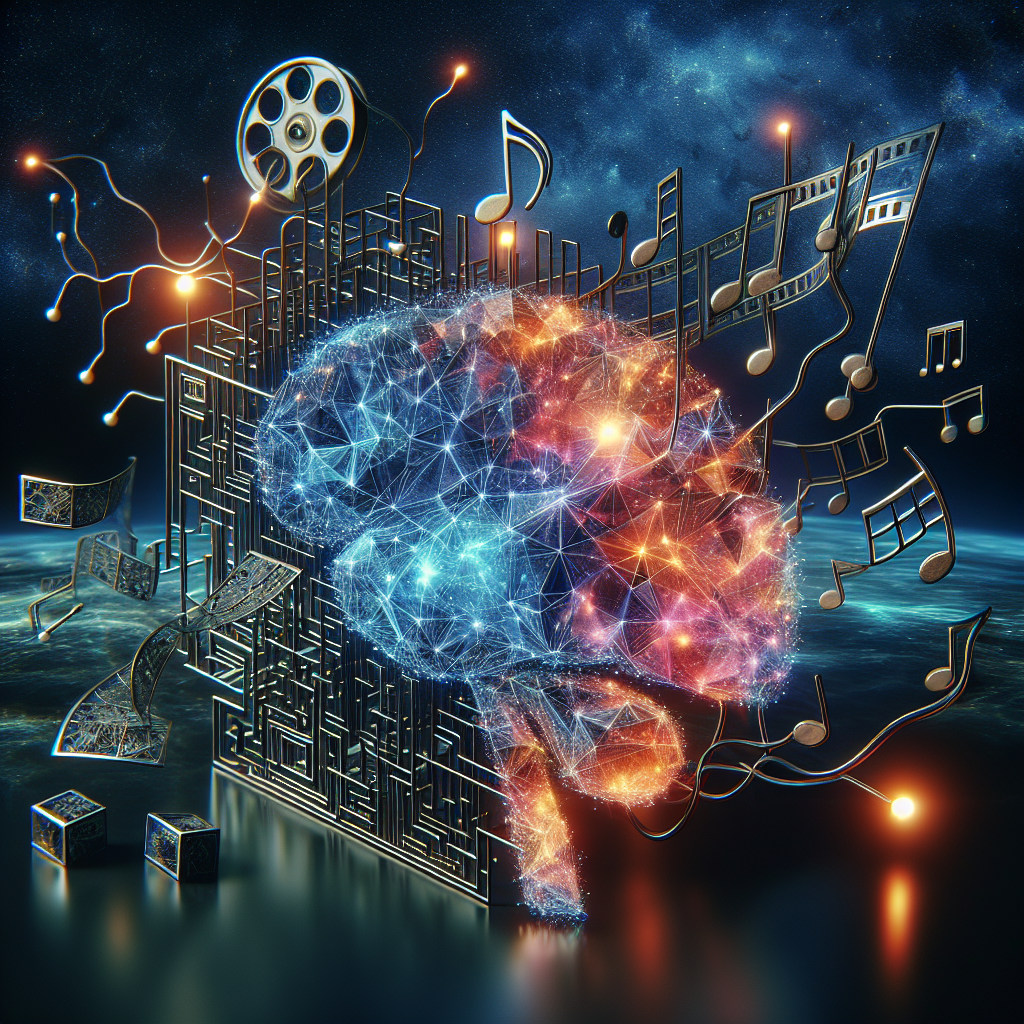The Future of AI-Generated Content
In recent years, the field of artificial intelligence (AI) has made significant advancements, particularly in the area of content generation. From writing articles and creating videos to designing graphics and composing music, AI has the potential to revolutionize the way we produce and consume content. As AI technology continues to improve and become more sophisticated, the future of AI-generated content looks promising.
AI-generated content refers to media that is created with the help of artificial intelligence technologies. These technologies can analyze data, learn patterns, and generate content that mimics human creativity. For example, AI-powered writing tools can generate articles, blog posts, and social media content that are indistinguishable from those written by humans. Similarly, AI can be used to create music, art, and even video content with minimal human intervention.
The rise of AI-generated content has the potential to transform a wide range of industries, from marketing and advertising to journalism and entertainment. Content creators can leverage AI tools to streamline their workflow, increase efficiency, and produce high-quality content at a faster pace. Brands can use AI-generated content to personalize their messaging, target specific audiences, and engage customers in new and innovative ways. Journalists can use AI to analyze data, generate insights, and produce stories that are both accurate and compelling.
One of the key advantages of AI-generated content is its ability to scale. AI-powered tools can generate content at a much faster rate than humans, allowing businesses to create more content in less time. This can be particularly useful for companies that need to produce large volumes of content for their websites, social media channels, and other marketing platforms. AI-generated content can also help businesses stay ahead of the competition by delivering fresh and relevant content on a regular basis.
Another benefit of AI-generated content is its consistency. AI tools can produce content that adheres to a specific style, tone, and brand voice, ensuring that all content is cohesive and on-message. This can be particularly useful for businesses that have multiple content creators or need to maintain a consistent brand image across different platforms. AI-generated content can also help businesses avoid errors and inconsistencies that can occur when content is created manually.
Despite its many advantages, AI-generated content also raises some concerns. One of the main challenges is the potential for AI to replace human jobs. As AI technology continues to improve, there is a risk that many traditional roles in content creation, such as writers, editors, and designers, could be automated by AI-powered tools. This raises questions about the future of work and the impact of AI on the job market.
Another concern is the potential for AI-generated content to be used for malicious purposes, such as spreading misinformation or propaganda. AI tools can be manipulated to create fake news, false narratives, and other forms of deceptive content. This raises ethical questions about the responsibility of businesses and individuals who use AI-generated content and the need for regulations to prevent the misuse of AI technology.
Despite these challenges, the future of AI-generated content looks promising. As AI technology continues to evolve, we can expect to see more advanced tools that can generate content that is even more sophisticated and engaging. Businesses that embrace AI-generated content can gain a competitive edge by delivering personalized, high-quality content to their audiences. Journalists and content creators can leverage AI tools to enhance their storytelling, analyze data, and produce content that is both informative and engaging.
FAQs:
Q: Can AI-generated content really replace human content creators?
A: While AI technology has the potential to automate certain tasks in content creation, such as writing and editing, it is unlikely to completely replace human content creators. AI-generated content can be a valuable tool for streamlining workflows, increasing efficiency, and scaling content production, but human creativity, intuition, and emotional intelligence are still irreplaceable.
Q: How can businesses ensure that AI-generated content is ethical and responsible?
A: Businesses that use AI-generated content should establish clear guidelines and standards for the use of AI technology, including ethical considerations. They should also invest in training and education for their employees to ensure that they understand the ethical implications of using AI tools. Additionally, businesses should be transparent with their audiences about the use of AI-generated content and take steps to verify the accuracy and credibility of the content they produce.
Q: What are some examples of AI-generated content in action?
A: There are many examples of AI-generated content being used in various industries. For example, chatbots powered by AI technology can generate responses to customer inquiries in real-time. AI-powered writing tools can generate articles, blog posts, and social media content. AI-generated music and art can be used in commercials, movies, and other forms of media. AI-generated video content can be used for marketing campaigns, product demonstrations, and virtual events.
Q: How can journalists and content creators leverage AI-generated content?
A: Journalists and content creators can use AI tools to enhance their storytelling, analyze data, and produce content that is both informative and engaging. For example, journalists can use AI to sift through large volumes of data, identify trends and patterns, and generate insights for their stories. Content creators can use AI to automate repetitive tasks, such as image editing and video production, and focus on more creative aspects of content creation.
In conclusion, the future of AI-generated content looks promising, with the potential to transform a wide range of industries and enhance the way we produce and consume content. While there are challenges and concerns associated with AI-generated content, businesses, journalists, and content creators can leverage AI tools to streamline their workflow, increase efficiency, and deliver personalized, high-quality content to their audiences. By embracing AI technology responsibly and ethically, we can unlock the full potential of AI-generated content and create a more innovative and engaging content landscape.

